Great Tang Idyll
CH 28
The dark clouds rolled as the fierce winds rose with one look that could behold the horizon.
The flash of lightning and rumble of thunder gave birth to the rain that seemed to blanket the distant mountains.
Zhang Xiaobao and Wang Juan, the two of them stood on top of a little stool, leaning against the windowsill to look outside.
The great rain poured down in buckets, hitting the ground in drips and drops as water bubble after water bubble appeared and disappeared.
Resembling a fine mist, countless rivulets of water gathered together, undulating towards the low-lying areas.
“I originally thought to give some carrots to the people at the manor.
But it looks like we can only wait till the weather’s clear to speak of it again.” Wang Juan bit on a carrot strip in her mouth, speaking with a muffled voice.
“Unh, I heard people mention this before.
With carrots, this stuff requires oil when cooking them to be able to better let people absorb the nutrition.
How could peasants have that much oil, ~ah? Carrot seeds themselves can produce oil, right?” Upon speaking of the peasants, Zhang Xiaobao crinkled up in an appearance of worried concern.
“They can.
They’re actually rather expensive, ~ne.
I’ve bought it before.
You know how to make it?” Wang Juan used a handkerchief to wipe her mouth as she spoke; the drool was a natural phenomenon.
“No, but I know how to make soybean oil.1 It’s very easy.
Just get something like a bucket and place the soybeans inside.
Then, don’t stop adding wedges inside.
The oil is forced out using physical pressure, leaving behind the soybean press cake.2 Some unscrupulous people would use this soybean press cake to make tofu but it’s not good tasting at all.”
“You~! You also know quite a few things?” Wang Juan had never seen this kind of method to press soybean oil before so was a bit disbelieving.
Zhang Xiaobao didn’t argue, either, and only slowly said: “What does this count for? There are some elderly people who, if they spoke of the things that they knew how to do, would scare you.
Some simple herbal medicine recipes, acupuncture and moxibustion,3 cupping,4 scraping,5brick-laying work, the breeding and rearing of animals, different kinds of crop planting experience, woodworking, charcoal burning, brick firing, basket weaving—they know all of this.
While some people use this knowledge to show off with, those honest people were already passing it down from generation to generation until it had been assimilated within their own lifestyle as a way to continue on living and a matter of instinct.
Other than the ones that I’ve mentioned, my Director Grandpa also knew how to paint, do brush calligraphy,6 engraving, feng shui7 reading; all the things to do with repairing the cracked jars, pots, and bowls8 as well as grinding the scissors and polishing the kitchen knives9 within the courtyard house were all done by him.”
As Zhang Xiaobao spoke, he seemed to sink into nostalgia once again as the expression on his face didn’t stop changing until finally, he exhaled a long, deep breath and smiled at Wang Juan.
That meaning was to tell her not to worry.
“It can’t be? I’m not saying that there’s no people that know these things, I’m saying that orphanage of yours can’t have not even been able to afford a single bowl? To actually need to repair cracks—who still knows how to repair cracks? Hearing my mom and dad [modern] speak of it, whenever they broke a dish or bowl during their childhood, they would get beaten.
Then later on, there was simply no one who’d care.” Wang Juan was a bit surprised.
“Let’s not speak of these matters.
When light appears, the other side always has darkness.
A good environment is nothing more than shadowless light, which is to obscure the darkness even more and nothing more than not allowing it to be easily found.
Above the shadowless light is also darkness.
This time, the money gotten from Swindler Song was a lot.
Have people collect soybeans tomorrow.
I want to extract oil.”
Zhang Xiaobao wiped away a droplet of rainwater that had fallen upon his face, returning to a child’s expression as he lightly spoke.
The sound of the two speaking was rather low so Xiaohong who was sitting by that place at the doorway only knew that the little ancestors were there speaking of whatever matters but was unclear as to the particulars.
Now, she was no longer worried that danger would appear with Little Mister and Little Miss.
The thing that she needed to do was to act as an assistant by their side.
It was raining outside today so she could sit here and learn her characters.
This was requested by Little Mister—each and every one of the people within the courtyard house must know how to read and write as well as how to calculate simple accounts.
As well as this, Little Miss Juan-Juan had also said that in the future, people would be hired to teach the children of the two manors with all of the expenses being wholly managed by the two families of Zhang and Wang.
The only request was no matter whether the education had been completed or not, they all had to treat the manor’s honor as their honor, shame as their shame.
Xiaohong couldn’t figure it out at all how the two little ancestors were actually thinking as the things they did always felt a bit like antelopes hanging their horns10 or celestial steeds traveling the skies.11 Unh, these were the words that the manor’s accountant had said—learned people were really not the same.
When the three people split into two groups to do their own work, Steward Zhang’s voice rose from within the rain outside.
“Mister Song, It’s raining today.
You [honorific] see? It’s so much that Little Mister has no way to come out to play and is currently inside the room.
If you [honorific] could wait a moment till I can go in to report.”
“If that’s so, then Steward Zhang has been troubled.” Song Jing-gong’s voice spoke afterward, giving off a listless impression to the listener.
Steward Zhang entered the exterior door and when he walked inside, he saw Xiaohong sitting there thinking on things.
According to his usual inclination, he would give a scolding here.
He had just opened his mouth to speak when he raised his head to catch sight of the two little ancestors standing close by the window so he swallowed his words.
He certainly knew that Little Mister wasn’t a person who was that easily fooled.
If such actions from Xiaohong hadn’t been given implicit permission by Little Mister, then Xiaohong would definitely dare not to do so.
If he really had opened his mouth to rebuke Little Mister’s maid servant, that consequence… Just thinking about it was scary.
Song Jing-gong was such an intelligent man but look at the state that Little Mister had bullied him into?
“Steward Zhang, is there something? Little Mister and Little Miss Juan-Juan typically don’t allow people to bother them.” Xiaohong had also seen Steward Zhang and was a bit afraid, moving the book in her hand behind her back as she spoke.
“An urgent matter—Song Jing-gong, Mister Song has arrived.
He’d arrived at the manor yesterday night but didn’t dare to come over and interrupt Little Mister’s rest, so he endured the rain to arrive here today.
Unh, you go and speak of it.
Study the books well.
The people by Little Mister’s side can’t be lacking in comparison to other families.”
Steward Zhang saw that Xiaohong had a book to read so that had certainly been arranged for by Little Mister.
He really didn’t know how to evaluate this little ancestor.
Such a formidable person as Song Jing-gong had actually been frightened to the point that he hadn’t slept well yesterday night.
His eyes were still ringed with black, ~ne.
“Unh, you’ve come? Please come in, then.
Go make tea according to the method that I taught you.
Here now, I can busy myself over matters a little less.” Zhang Xiaobao had actually already heard the sound of Song Jing-gong talking outside but he still waited for Xiaohong to finish talking before speaking up.
Song Jing-gong held up an umbrella while he stood in the rain, allowing that rainwater flowing downward to soak his own shoes, not moving one bit.
Even if the wind blew in at an angle and brought with it rain that saturated the lower half of his body, he still didn’t feel it.
He kept on thinking of the words that Yingtao had said when he had arrived yesterday.
He had asked Yingtao which great master had plotted against him.
At that time, Yingtao had curled her lips and said what great master is needed to plot against you? My family’s Little Mister will do.
That day, when you set foot upon the bridge, you’d already had no path of retreat.
How she said this was frightening, ~ah.
Those in the know clearly understood that bridge was the one connecting Mu Manor and the two manors of Zhang and Wang; those who didn’t know would assume that it was the Bridge of Helplessness,12 ~ne.
Of course, Song Jing-gong didn’t believe it.
But then, Yingtao reminded him that could it be that he had forgotten how he had given away the money and given away the jade ornament when he had arrived that day? To take care of this kind of you, my Zhang Manor only needs to send out a one year old child.
This was the cause for Song Jing-gong’s conflict.
Today, he wanted to see if that child could really be as formidable as how Yingtao had described.
“Mister Song, my family’s Little Mister invites you.” Just as Song Jing-gong was still in the middle of his thoughts, Steward Zhang came out and spoke in greeting.
“Good, many thanks to Steward Zhang.
Steward Zhang, wait.
This Song has some doubts in his heart and kindly asks Steward Zhang to help with one or two of them.” Song Jing-gong was about to go inside but then, stopped Steward Zhang.
“Mister Song, please speak freely.”
“This Song wants to know if the words that Steward Zhang said to your noble manor’s Mistress outside of this Song’s window that day was intentional? What connection is there with your noble manor’s Little Mister?” Song Jing-gong had thought of a few particular details.
“Mister Song, we will be working together from now on so please take care of me.” Steward Zhang answered what was not asked, stretching out a hand in a gesture of invitation before turning around to leave.
Filled with misgiving, Song Jing-gong stepped inside.
After bypassing the outer room, he saw that in the inner room there, a cushion had already been prepared.
In between the cushion and the little couch opposite it was an end table.13 Song Jing-gong naturally knew that the cushion was for him to sit on so not bothering with manners, he walked in and sat down.
When he looked toward the couch, there was actually nobody on it.
At this time, his eyes had just adjusted to the brightness in the room so when he looked around again, he saw the two little kids from that day standing by the window there looking at the rainy scenery outside, ~ne.
“Xiaobao, what do you say—is going outside for a turn better than staying inside?” Song Jing-gong heard the little girl’s voice.
“No, the rain outside is too big.
Besides, using an umbrella is tiresome, too.” Song Jing-gong also heard the little boy’s activity.
“Use what umbrella? Wearing a straw raincoat14 will do, ~ah.
Look at the mountains, gaze at the rainy view.
How is that phrase said? Oh, it’s called ‘in straw bearing a lifetime of smoke and rain.’”15 The little girl’s voice.
“No, I’ll get sick.
By then, it’ll be ‘the flowing wind is to always be buffeted by the rain and blown away by the wind.’”16 The little boy’s voice.
Song Jing-gong heard this and for a moment, he felt like he had gone to the wrong place.
This wasn’t Zhang Manor; this was the Imperial Academy.17 Before the window weren’t little kids but were clearly twoxiucai.18
“Ya~, Mister Song has arrived.
Pardon me, pardon me.
Xiaohong, serve tea.” As if just discovering that there was another person in the room, Zhang Xiaobao, pulling along Wang Juan, jumped down from the stool as they both came over to this side with the couch and sat there while giving greeting.
“Well said, well said.
Mister Zhang here was too absorbed.
Wonder who this little miss by Mister Zhang’s side is…?” Song Jing-gong unwittingly and inadvertently treated this little kid in front of him like an adult, only realizing after he had spoken that these were clearly two children.
“Oh, this one is this Zhang’s green plum and bamboo horse,19 Wang Manor’s Juan-Juan.” Zhang Xiaobao gestured with his hand as he gave an introduction.
“Green plum and bamboo horse?” Song Jing-gong was confused again.
What was the meaning?
Wang Juan spoke up at this time: “It’s the meaning of ‘boy comes riding a bamboo horse; winding around the bed are green plums; two little ones with no suspicions.’20 So stupid.
And you’re even a Juren, ~ne.
With learning, there’s no learning; with swindling, you still can’t beat others in swindling.”
Wang Juan had already lowered her voice with those last words but Song Jing-gong could still hear them clearly.
If it were anyone else saying this, he would debate this point but facing these two kids today, he only felt a kind of helplessness.
Where had the ancestral tombs of the two families of Zhang and Wang been buried?21
At this time, Xiaohong had already served the tea.
In front of Zhang Xiaobao and Wang Juan was hot tea.
In front of Song Jing-gong were two kinds of tea, one hot and one cold.
Regardless of whether they were hot or cold, they were all very green and different from the ones that Song Jing-gong had drank before in the past.
“Mister Zhang, this is…?” Song Jing-gong pointed at the cold tea22 as he asked.
“Cold tea.” Zhang Xiaobao explained.
If you are a reader that is seeing this, I apologize for the inconvenience.
If you are reading this
“Oh, then why does only this Song have it?” Song Jing-gong asked again.
“With people of status, who would drink cold tea? You joking? Juan-Juan and I are too young; it’s too easy to get an upset stomach from drinking cold things.” Zhang Xiaobao said while smiling.
Though “dou you” (豆油) literally translates to a generic “bean oil,” it is because soybeansare the largest bean crop in Asia so they hardly needed to point out that the bean in question was soybean, which is similar to how hardly anyone points out that flour tends to really mean wheat flour since it is already understood to be wheat without further elaboration. Soybean oil is commonly used as a cooking oil though it also has other applications.
“Dou bing” (豆餅) translates to “bean cake” but the cake part actually refers to the oil or press cake that’s left behind after the liquid or oil is extracted and it’s not an actual finished product that’s prepared for consumption purposes.
To ensure the reader’s understanding and avoid confusion, I translated this term as “soybean press cake.”
For those who aren’t aware, “zhen jiu” (針灸) is the Chinese term for the combined practice of acupuncture and moxibustion within traditional Chinese medicine that involves sticking needles into the body at acupuncture points and the burning of ground up Chinese mugwort(moxa in English based on the Japanese pronunciation) on the acupuncture needles or patient’s skin.
The therapy is typically used for pain relief but has a wider range of applications, especially within traditional Chinese medicine.
Development of acupuncture rose from Chinese concepts such as qi, meridians, etc.
“Ba guanzi” (拔罐子) or “cupping” is a form of therapy in traditional Chinese medicine that involves using cups to form suctions on the skin in the belief that this encouraged blood flow in order to to heal the body.
Cupping therapy is generally divided into two types, which are dry cupping and fire cupping.
“Gua Sha” (刮痧), which I’ve translated as “scraping,” is a form of treatment in traditional Chinese medicine where practitioners scraped the patient’s skin to cause bruising.
The thinking behind this therapy was that the scraping released internal toxins and increased blood circulation as well as encouraged healing.
Xiaobao refers to it as “maobi zi” (毛筆字) or “ink brush characters” when he really meansChinese calligraphy or “book method” (書法), which is the writing of Chinese charactersusing an ink brush.
“Feng shui” (風水) literally translates to “wind water” and is a practice that believes in harmonizing people with nature and has its origins in Daoist beliefs and concepts such asqi, the eight trigrams or bagua (八卦), and the yin-yang theory.
It also uses Chinese astrology and the Five Elements system or “Wu Xing” (五行), having some fortune-telling aspects to it as well.
Feng shui was important in ancient China (and today!) as people would seek out practitioners to find a location with the best qi or energy flow to build a structure so that it can give the most luck and good karma or energy to its owners or inhabitants.
In modern times, this could cause decisions in architectural design that wouldn’t make sense to Western thinking like an extraneous looking hole in the middle of a building.
Ju/鋦 describes the ancient Chinese method of patching together broken ceramicware or porcelain before the advent of super glue.
Strips made out of flattened copper or iron nails called juzi/鋦子 were used to stitch the cracked pottery shards together.
For an example of a porcelain jar repaired in such a way, visit this Baidu page here.
The Chinese used here is “mo jianzi qiang caidao” (磨剪子戧菜刀) but that is probably a typo since the correct characters are “mo jianzi qiang caidao” (磨剪子鏹菜刀) and refers to the craft involved with grinding and polishing scissors and cleavers used as kitchen knives in order to sharpen their edges.
This used to be an ancient profession in China, similar to the wandering tinkers who mended household utensils in the West.
“Ling yang gua jiao” (羚羊掛角) is a Chinese expression that arose from the mistaken belief that antelopes hung their horns on the trees and slept with their feet off the ground in order to prevent being tracked down and ambushed at night.
This idiom is meant to describe someone who thinks outside the box or is out of the ordinary with their actions.
“Tian ma xing kong” (天馬行空), which I have translated literally in text, is a Chinese 4-character couplet that’s used to describe people who are unconstrained and free like the celestial horses, making them unpredictable.
It can also reflect negatively on such people since they could be said to not be so grounded in reality.
In this case, Xiaohong is referring to the greatness of vision that Xiaobao and Juan-Juan seem to have in their plans and actions whose direction or goal no one else can seem to get a grasp on.
“Naihe Qiao” (奈何橋), which I’ve translated as the Bridge of Helplessness, is a bridge found in the Chinese version of the underworld called “Diyu” (地獄), which literally means “earth prison.” Any souls that crossed the bridge were greeted by Meng Po (孟婆), whose name means “Granny Meng,” who served them a soup called “mi hun tang” (迷魂湯) or “drugged soul soup” that would induce amnesia so that they could continue on to their next life without any memories of their previous life or of their time in the underworld.
The bridge is similar in concept to the river Styx that must be crossed by the dead in Greek mythologywhile the soup has the river Lethe as its Greek counterpart.
The reason for the bridge’s name in Chinese is because crossing the bridge can’t be helped or avoided.
The end table is called a “xiao ji” (小几) and can also be referred to as a tea table or “cha ji” (茶几).
For images on what it looks like, visit this Baidu page here.
“Suo yi” (蓑衣) was a garment made out of rice straw that was water-resistant and was the ancient Chinese form of a raincoat before actual waterproof materials like rubber or plastic were created.
The mino (蓑) is the Japanese version of this clothing.
Juan-Juan is quoting a poem by Northern Song dynasty poet Su Shi (蘇軾), who is also known as “Su Dongpo” (蘇東坡), which is where the Hangzhou dish of Dongpo pork gets its name from.
The quote “yi suo yan yu ren ping sheng” (一蓑煙雨任平生) is from Su Shi’s “Ding Feng Po” 《定風波》 and given the context of the poem, the imagery of the straw raincoat that takes the battering of smoke and rain is likened to facing up to the trials of life with armor-like equanimity.
Xiaobao is quoting Southern Song dynasty poet, Xin Qiji (辛棄疾).
The phrase, “feng liu zong bei yu da feng chui qu” (風流總被雨打風吹去), is from his poem, “Yong Yu Yue – Jingkou Beigu Ting Huai Gu” 《永遇樂·京口北固亭懷古》, whose title can be roughly translated as “Eternal Encounter Song – Yearning for the Past at the Northern Pavilion in Jingkou.” He wrote this in 1205 at the location in question as a criticism of Emperor Wen of Liu Song (劉宋文帝) who he felt didn’t appreciate his talents and contrasts Emperor Wen unfavorably against two men much feted for their greatness who had both been associated with Jingkou (京口), past incarnation of the modern day city of Xuzhou (徐州市): Sun Quan (孫權), the founder of the state of Eastern Wu (東吳) from the Three Kingdoms period, and Emperor Wu of Liu Song(劉宋武帝) who founded the Liu Song dynasty (劉宋朝) and was Emperor Wen’s father.
The meaning of the line Xiaobao is quoting when considering the context of the poem is essentially lamenting how heroes who were free like the flowing wind are still not immune to the ravages of time as represented by the rain and wind so their presence or spirit will still disappear (as evidenced by Emperor Wen failing to live up to the memory of his father).
So, Xiaobao is probably using hyperbole to claim that he would get sick and died if he went along with the action that Juan-Juan is proposing here.
Hopefully, I explained this well enough… ^_^;
The “Hanlin Yuan” (翰林院), which I’ve translated as the Imperial Academy though the name literally means “Forest of Brushes School,” was an institution founded by Emperor Xuanzong of Tang that gathered an elite group of scholars who gave interpretations of the classic texts that the civil exams were based on.
Members did secretarial and administrative work for the Emperor and included court painters, diplomatic translators, archivists, as well as scribes for the Imperial edicts or decrees.
“Xiucai” (秀才), which literally means “distinguished talent,” was the title for those who had passed the civil exams at the local county level.
If their test ranking was high enough, they could also receive a stipend from the government in addition to being able to attend the local equivalent of a state-funded high school (I do not say public because it was not open to the public).
This was also the level at which such degree holders started receiving some of the privileges reserved for the scholarly class like not having to kneel in front of the magistrates when appearing in front of them.
“Qing mei zhu ma” (青梅竹馬) essentially means “childhood sweetheart” with the “green plum” (qingmei/青梅) typically used to refer to the girl and “bamboo horse” (zhuma/竹馬) for the boy in Chinese and is derived from a poem that illustrates such a situation.
In cases where its literally meaning is not specifically pointed out and/or no wordplay is involved, I will usually translate this phrase as childhood sweethearts.
Juan-Juan is quoting the relevant poem to explain the 4-character couplet that means “childhood sweethearts” in Chinese: “郎騎竹馬來,繞床弄青梅,兩小無猜.” The source is “Chang Gan Xing” 《長干行》 by famed Tang dynasty poet, Li Bai (李白).
It illustrates a young woman’s story of love since her childhood and their parting.
The American poet Ezra Poundlater did a translation of this poem and titled it “The River Merchant’s Wife: A Letter.”
In case people are wondering why Song Jing-gong is asking this question, as part and parcel of believing in ancestor worship and feng shui, Chinese people naturally thought that burying their ancestors in a place that had good feng shui could help grant fortune to them as the ancestral spirits would naturally grow in strength to be able to bless their descendants.
So Song Jing-gong is basically wondering what kind of super powerful feng shui location had the Zhang and Wang family ancestors been buried in to bless these two families with such unnaturally intelligent descendants like Xiaobao and Juan-Juan.
“Liang cha” (涼茶) literally means “cold tea” but is known as herbal tea or tisane in English since they could include other substances like herbs, spices, or plants and are not prepared in the normal way as true teas.
Another name would be tea infusion.
However, as the name in Chinese suggests, these teas were served chilled or cold in China.
To avoid reader confusion, I have translated it literally.
You'll Also Like
-
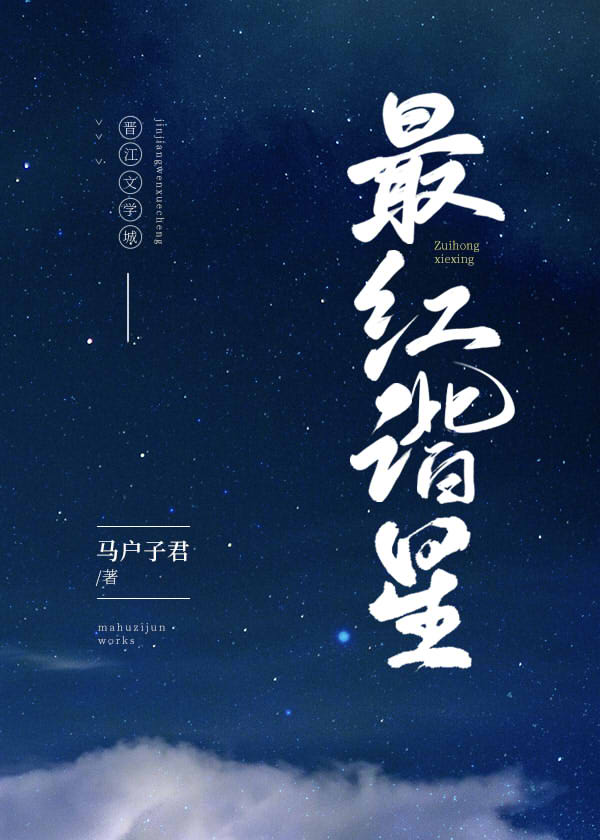
The Most Popular Comedian
Chapter 65 September 3, 2023 -
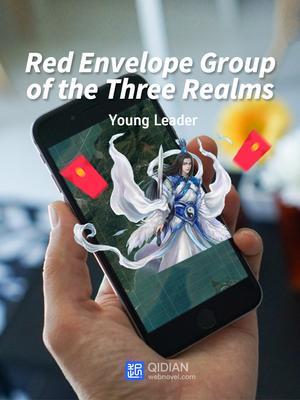
Red Envelope Group of the Three Realms
Chapter 1986 September 1, 2023 -
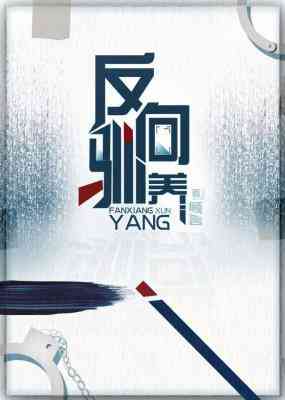
Reverse Domestication
Chapter 39 September 2, 2023 -
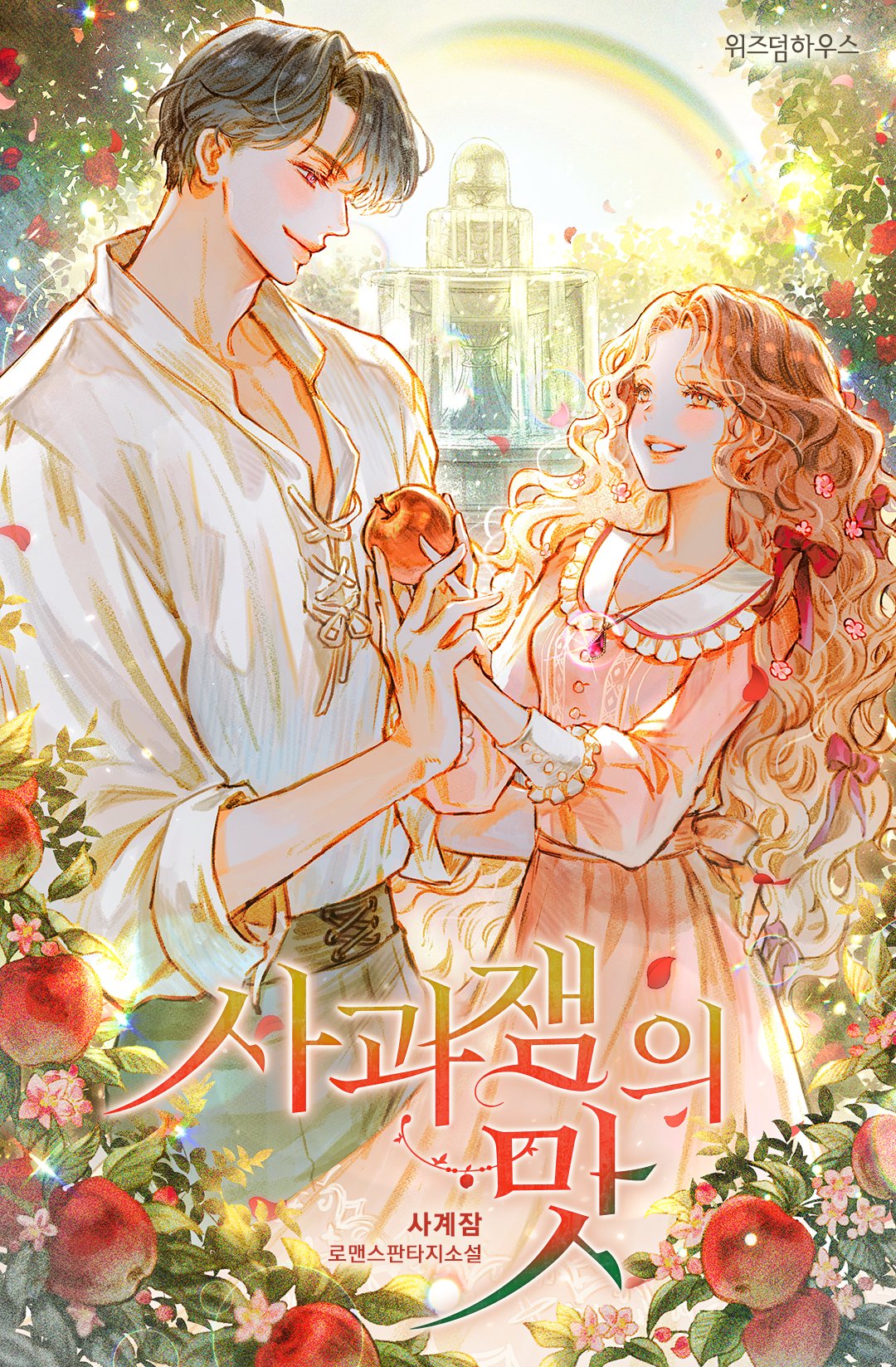
The Taste Of Apple Jam
Chapter 9 August 29, 2023 -
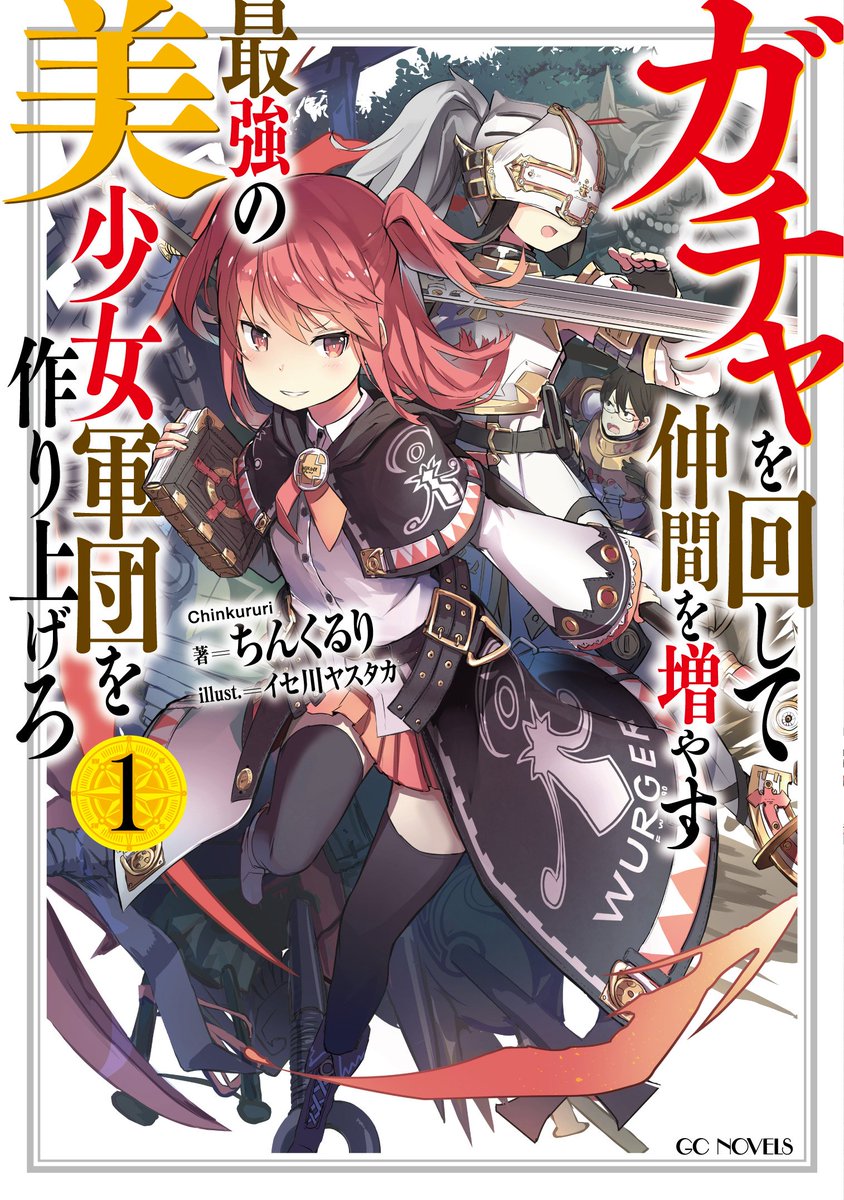
Using Gacha to Increase My Companions and to Create the Strongest Girls’ Army Corps
Chapter 84 August 28, 2023 -
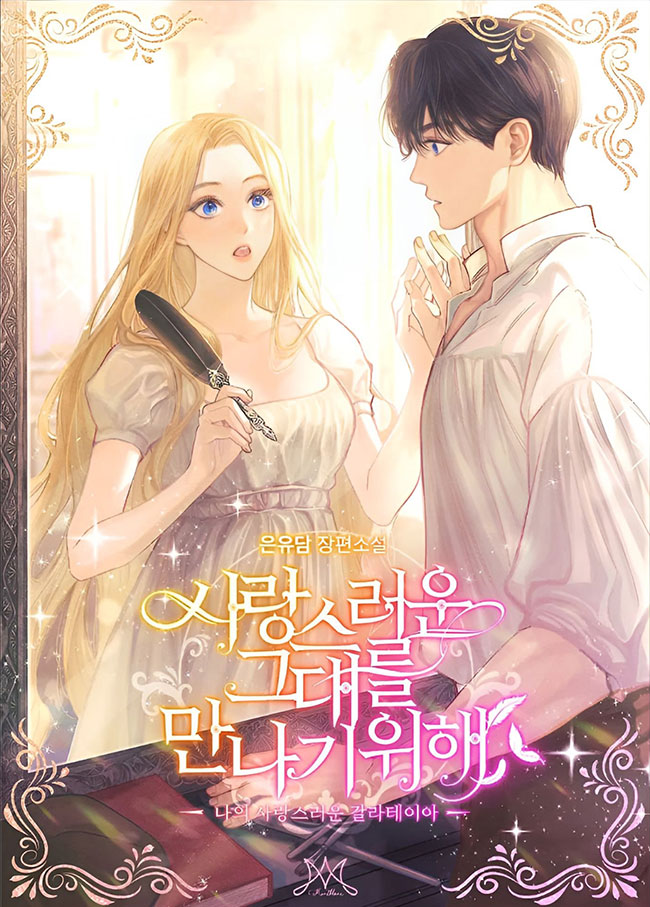
In Order To Meet You, Beloved
Chapter 35 August 28, 2023 -
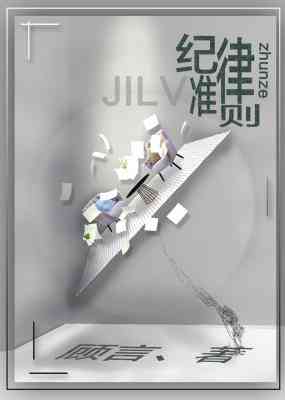
Disciplinary Code
Chapter 65 September 4, 2023 -
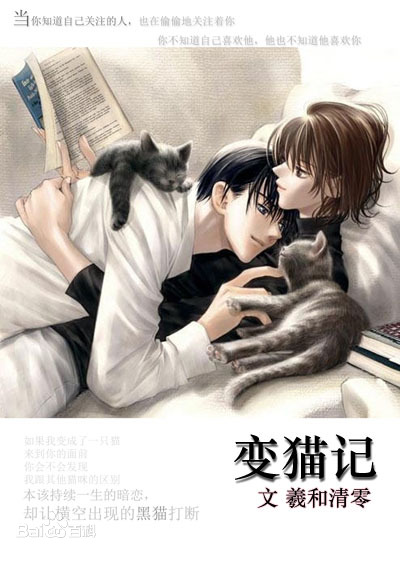
The Cat Transformation
Chapter 27 August 26, 2023 -
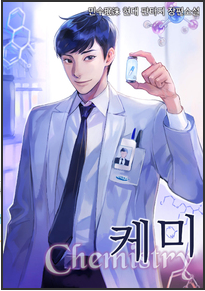
Chemistry
Chapter 61 August 25, 2023 -
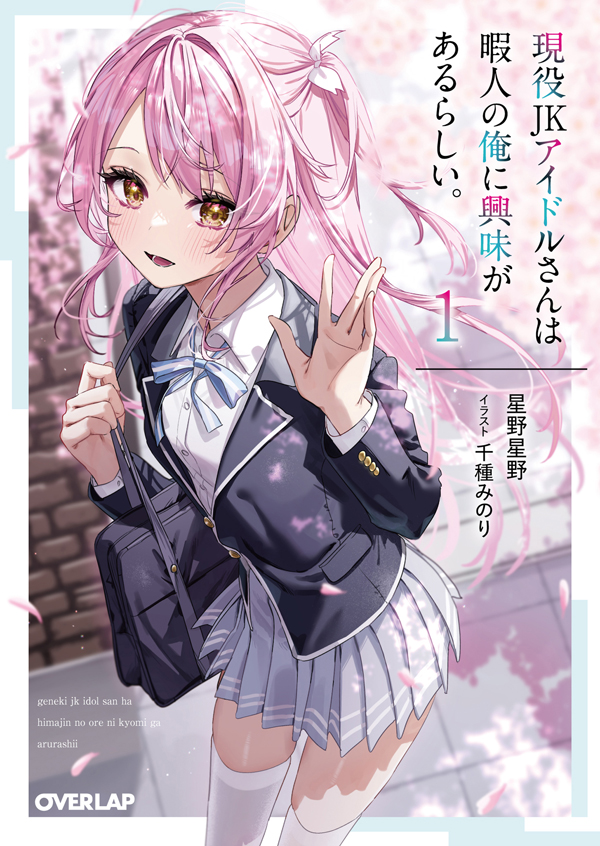
Active JK Idol Seems to be Interested in Me Who is a Free Person.
Chapter 32 August 25, 2023 -
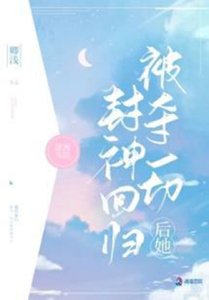
After Being Robbed of Everything, She Returns as a Goddess
Chapter 47 August 25, 2023 -
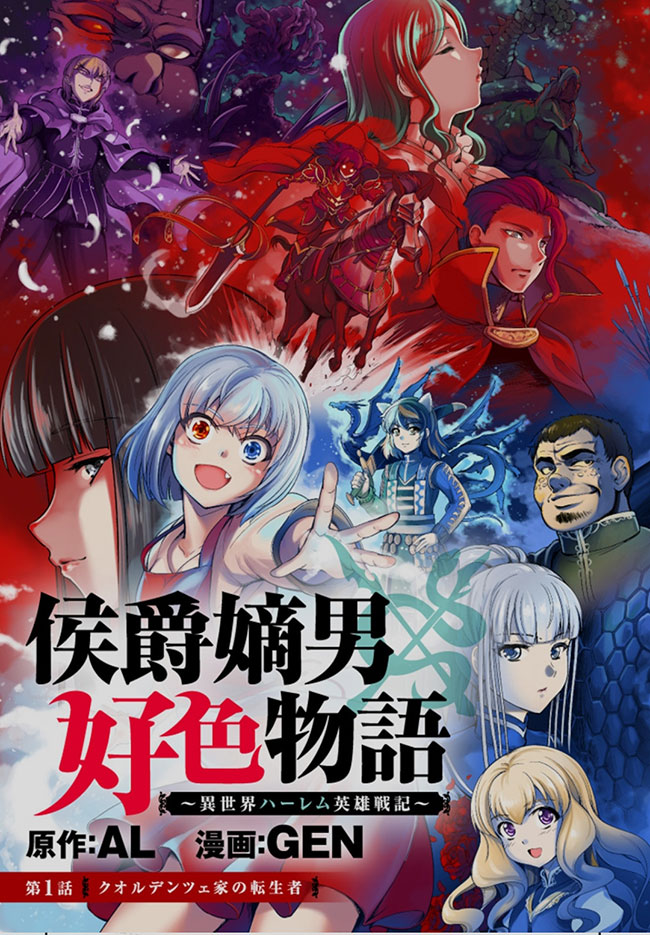
The Marquis’ Eldest Son’s Lascivious Story
Chapter 232 August 26, 2023
